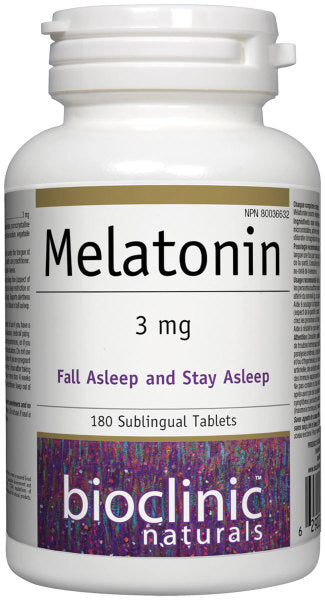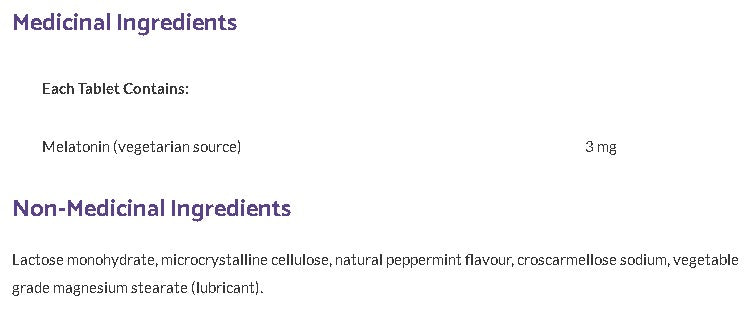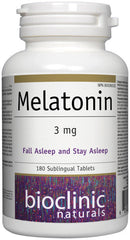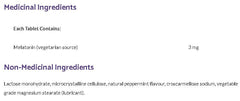



Melatonin · 3 mg
- 14.99$
0.00$- 14.99$
- Unit price
- per
Description
x- Sublingual tablets provide rapid and superior absorption of melatonin, bypassing hepatic and gastrointestinal metabolism - pharmacokinetic studies indicate that 30-60% of an oral dose of melatonin is metabolized by the liver1 and that overall gastrointestinal absorption is variable
- The 3 mg concentration is optimal for people who need basic sleep support or are trying melatonin for the first time.
- Derived from non-animal sources
- Natural and refreshing peppermint aroma
- Non-habit forming
Sleep is an essential component of health, and many of us don't get enough of it. The 2002 Canadian Community Health Survey found that approximately 1 in 7 adults have difficulty falling or staying asleep. Insomnia affects one in three seniors and is 40% more common in women. Changes in sleep patterns are largely a reflection of our circadian rhythms, which are guided by the pineal hormone melatonin. Melatonin is known to decline with age, which explains many of the sleep changes observed throughout life. In addition, jet lag and shift work can significantly alter circadian rhythms and, therefore, melatonin secretion.
Melatonin has been clinically shown to be beneficial in inducing sleep or adjusting sleep cycles, reducing the time it takes to fall asleep, and improving perceived sleep quality, without impairing daytime psychomotor performance. In fact, melatonin supplementation and light therapy are considered standard medical treatment for jet lag, shift work, age-related insomnia, delayed sleep phase disorder, advanced sleep phase disorder, and 24-hour sleep-wake disorder. Chronic sleep disturbances are a risk factor for premature aging, diabetes, obesity, cardiovascular disease, and certain cancers, highlighting the importance of maintaining normal melatonin levels to improve sleep quality.
Produits recommandés
Produits récemment consultés
- Choosing a selection results in a full page refresh.



